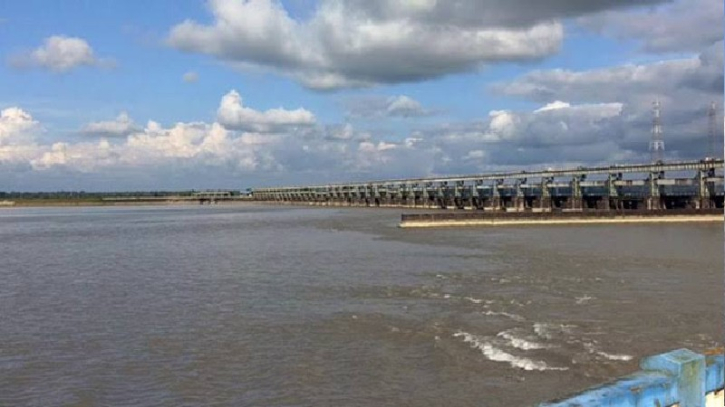
India’s Water Dominance: A Threat to Regional Stability
The recent statement on March 25 by Ritabrata Banerjee, a Member of Parliament from India’s All India Trinamool Congress, calling for the renewal of the Ganges Water Treaty in alignment with the will of West Bengal, has once again brought to light a harsh reality: India, as the upstream nation, is exercising disproportionate control over transboundary water resources—strangling the lifeline of downstream countries like Bangladesh.
According to data, 91.44% of Bangladesh’s surface water originates from rivers that flow through India. Of the 57 transboundary rivers shared between the two nations, 54 are directly linked to India, leaving Bangladesh’s water security largely dependent on its neighbour’s policies. For decades, India has unilaterally controlled these upstream resources, constructing dams and diverting flows without meaningful consultation—actions that have significantly impacted Bangladesh’s agriculture, industry, and ecological balance.
This water dominance must no longer go unchecked. The international community must act to end such hydrological unilateralism by establishing an equitable and legally binding mechanism for water-sharing. Access to water is a fundamental right tied to survival and development—it should not be weaponized for political leverage.
India's long-standing portrayal of itself as an upstream power has fostered a pattern of unilateralism in international river management. The refusal to recognise the Padma (Ganges) River as an international waterway, and the construction of the Farakka Barrage in 1971 without consulting downstream stakeholders, caused severe damage to Bangladesh’s ecosystem and economy.
Similarly, the unapproved construction of the Gozaldoba Barrage in 1993 rendered several water infrastructure projects inoperative in Bangladesh. The Indian government’s current Inland Waterways plan raises further alarm, as it risks large-scale ecological and agricultural disruption downstream.
The 2026 expiration of the Ganges Water Treaty is a moment of concern. There is a strong possibility that India may seek to impose unequal terms under the guise of treaty renewal. Bangladesh must prepare to mobilize diplomatic and legal support to safeguard its sovereign water rights.
India’s approach to transboundary water diplomacy is riddled with double standards. It has advocated multilateral dialogue in disputes with Pakistan over the Indus River but has repeatedly rejected trilateral or regional negotiations involving Bangladesh, China, and Nepal on the Padma. In 2011, a regional initiative led by China to include Nepal in joint river management was summarily dismissed by India—despite its own efforts to bring in international arbitrators for the Indus issue. Such selective multilateralism reveals the hypocrisy underlying India’s diplomatic posturing.
Furthermore, India’s federal structure has emerged as a structural impediment to transboundary water cooperation. While the Indian Constitution devolves water governance to its states, this decentralization has led to repeated deadlocks in international negotiations. The long-stalled Teesta River Agreement has been caught in this web for over four decades. In 2011, an agreement pledged by the Indian Prime Minister was blocked by West Bengal’s leadership. Most recently, during the 2024 visit of Bangladesh’s Prime Minister, Mamata Banerjee once again obstructed negotiations, citing exclusion from the decision-making process.
Data suggest that 67% of transboundary river projects in India have been delayed due to state-level objections, yet New Delhi continues to construct dams on nearly 70% of its more than 4,000 rivers without coordinating with downstream nations. India’s use of federalism as a tool to avoid responsibility, paired with its unilateral exploitation of shared water resources, is a direct violation of international water norms.
India’s hegemonic behavior on water issues—characterized by control of upstream flows, selective diplomacy, and systemic evasion through internal politics—poses a significant threat not just to regional food security but also to international law and environmental stability. If left unchallenged, this approach risks escalating ecological degradation and geopolitical tensions in South Asia.
The world must no longer remain silent. It is time to advocate for an equitable, rules-based order for transboundary water governance—one that respects the rights of all riparian states, upstream and downstream alike.


























